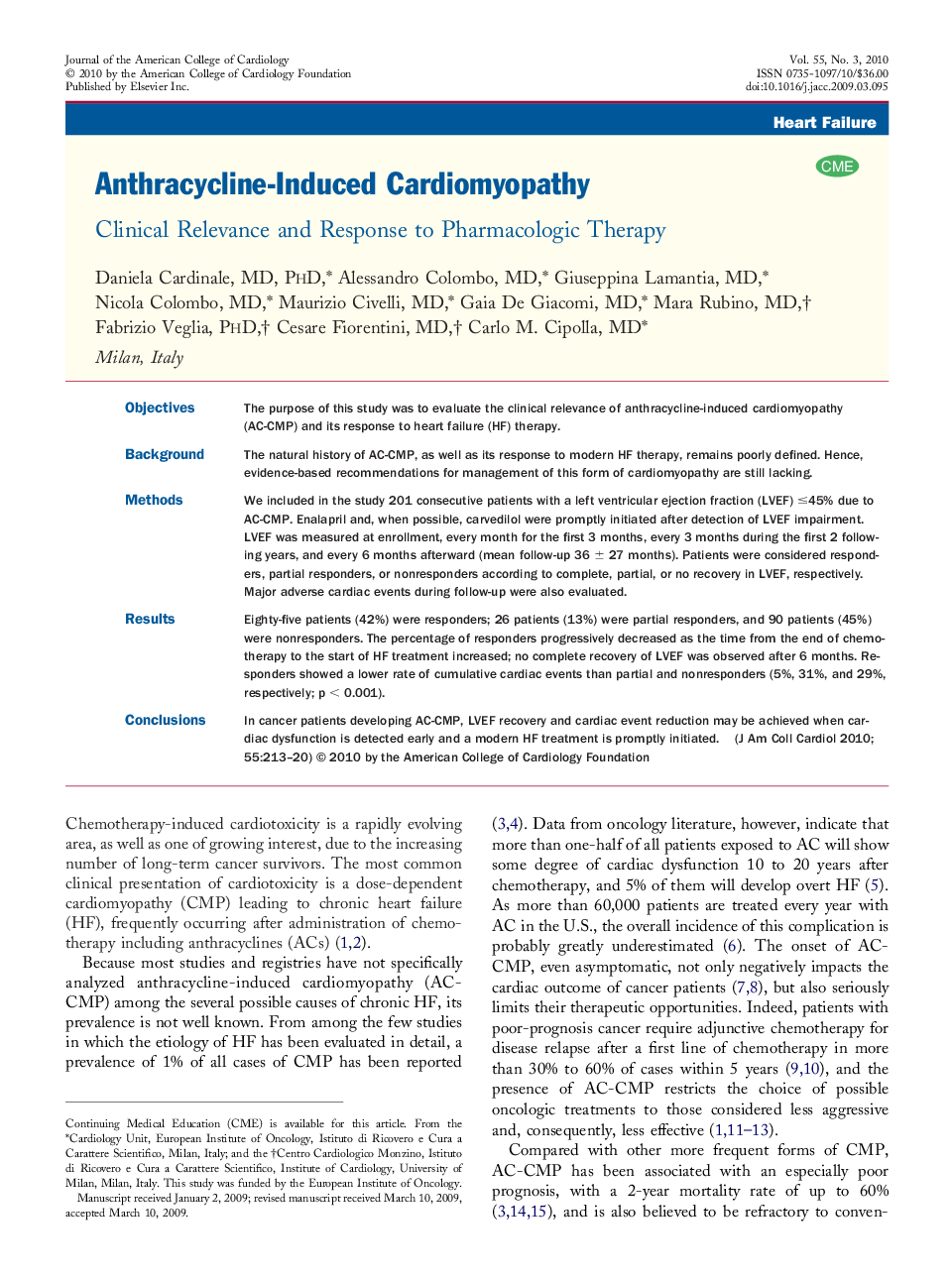| Article ID | Journal | Published Year | Pages | File Type |
|---|---|---|---|---|
| 2948922 | Journal of the American College of Cardiology | 2010 | 8 Pages |
ObjectivesThe purpose of this study was to evaluate the clinical relevance of anthracycline-induced cardiomyopathy (AC-CMP) and its response to heart failure (HF) therapy.BackgroundThe natural history of AC-CMP, as well as its response to modern HF therapy, remains poorly defined. Hence, evidence-based recommendations for management of this form of cardiomyopathy are still lacking.MethodsWe included in the study 201 consecutive patients with a left ventricular ejection fraction (LVEF) ≤45% due to AC-CMP. Enalapril and, when possible, carvedilol were promptly initiated after detection of LVEF impairment. LVEF was measured at enrollment, every month for the first 3 months, every 3 months during the first 2 following years, and every 6 months afterward (mean follow-up 36 ± 27 months). Patients were considered responders, partial responders, or nonresponders according to complete, partial, or no recovery in LVEF, respectively. Major adverse cardiac events during follow-up were also evaluated.ResultsEighty-five patients (42%) were responders; 26 patients (13%) were partial responders, and 90 patients (45%) were nonresponders. The percentage of responders progressively decreased as the time from the end of chemotherapy to the start of HF treatment increased; no complete recovery of LVEF was observed after 6 months. Responders showed a lower rate of cumulative cardiac events than partial and nonresponders (5%, 31%, and 29%, respectively; p < 0.001).ConclusionsIn cancer patients developing AC-CMP, LVEF recovery and cardiac event reduction may be achieved when cardiac dysfunction is detected early and a modern HF treatment is promptly initiated.
